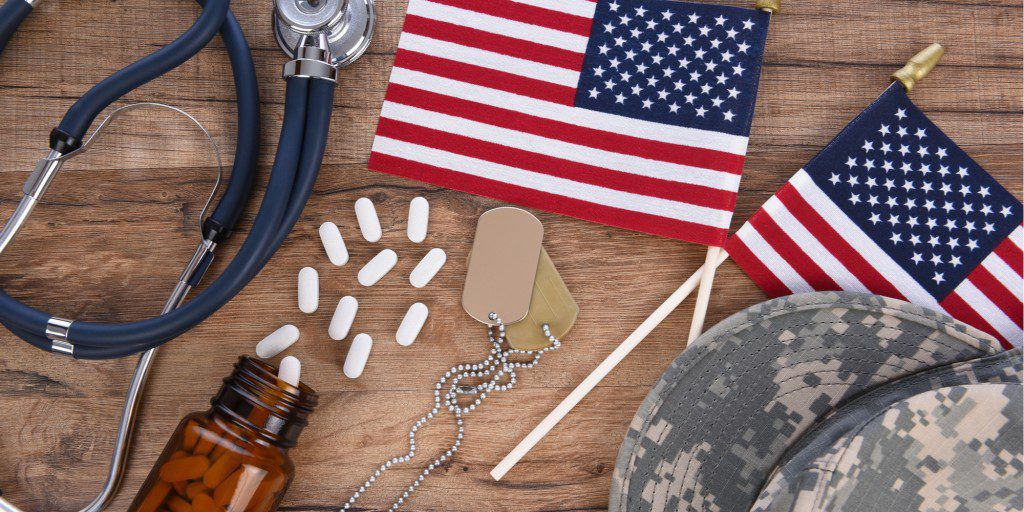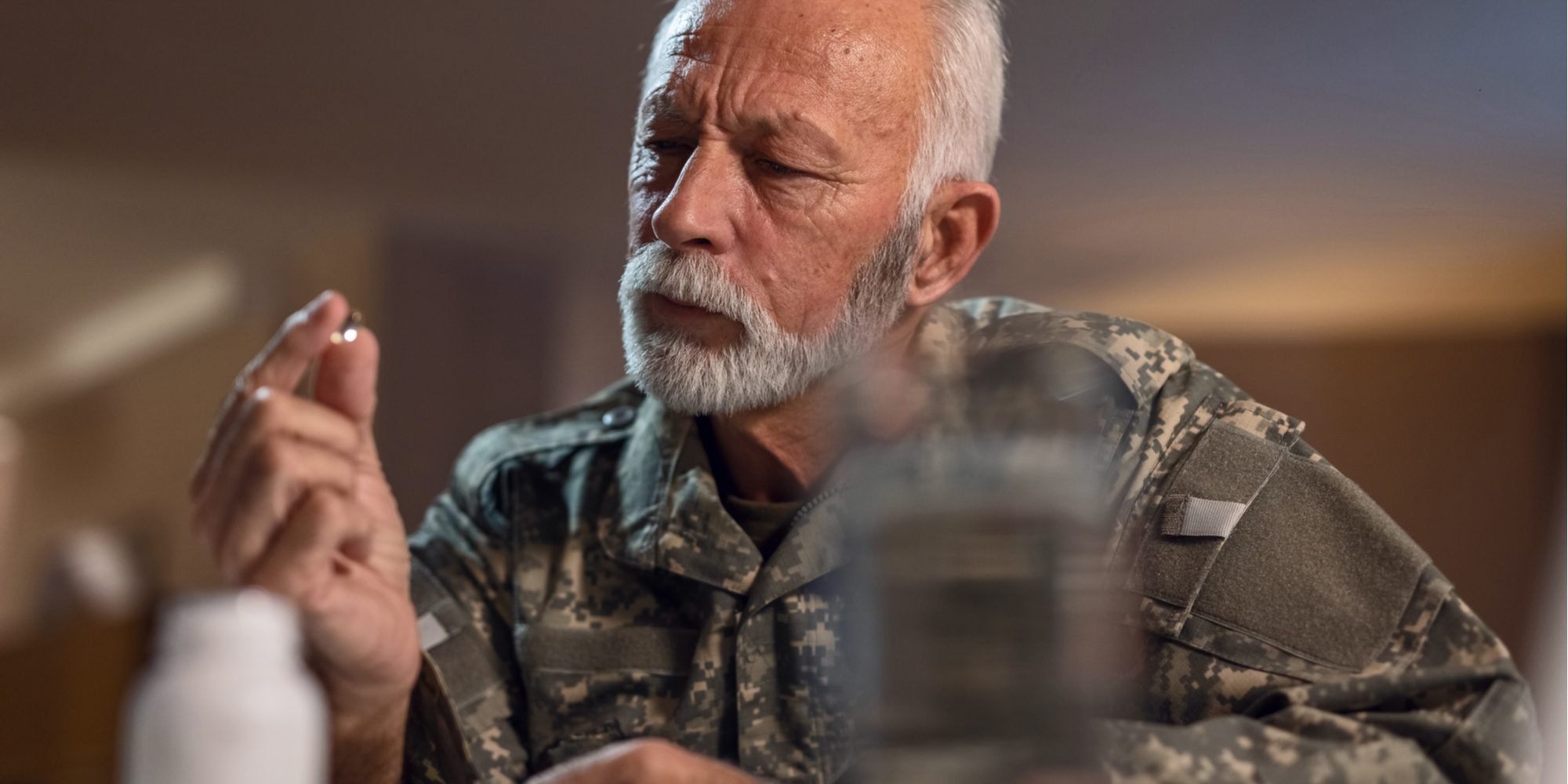There are various signs of addiction, but they can vary depending on the substance, lifestyle factors, and the mental health of the individual. For example, veterans may display different symptoms of addiction than civilians, even if they share the same addiction. For this reason, it’s important that veterans have their own resource for spotting the early warnings signs of addiction.
Today, that’s exactly what we’re providing. By providing overviews of the most common addictions that veterans face, we’ll help you see common warning signs and patterns of addiction. Keep reading for a look at different types of addiction and signs that a veteran is living with a substance use disorder.
Signs of Heroin and Opioid Addiction in Veterans

For many veterans, their relationships with opioids begin in healthy ways. For example, a service-related injury could lead to chronic pain, which could be treated with prescription opioids. Then, over time, an individual might develop a tolerance to the opioid painkillers, which can lead to them needing more and more to get pain relief. Moreover, they may start to become sick when they cannot take opioids.
Once a veteran is physically dependent on opioids, they may present with a tell-tale sign of a pill addiction, which is doctor shopping. This means that after a doctor has stopped providing opioids, they may continually seek out a new doctor who will prescribe them, even if they have to visit many providers. And when a provider cannot be found to prescribe prescription opioids, an individual may turn to other opioids to satisfy their addiction.
Ready to start your journey to recovery?
This is how many veterans get started on heroin and other illegal opioids. Somewhere in the stages of addiction, the goal becomes less about managing chronic pain and more centered on getting opioids to avoid withdrawals. For veterans, some of the signs of opioid addiction include:
- Not following prescriptions: When veterans take more than their prescribed dosages of opioid painkillers, this is an early warning sign that addiction is developing.
- Increase in PTSD symptoms: Sometimes, veterans take opioids to help manage some of their PTSD symptoms, especially those that relate to panic or anxiety. But as an opioid addiction develops, PTSD symptoms can get worse, and opioids will lose their efficacy in treating these issues.
- Obsession with finding opioids: Once addiction has developed, finding more opioids becomes the most pressing thing in an individual’s life. They likely spend hours thinking of how they will get more opioids and how long they have until they run out. This is a sign of addiction that often presents only after the addiction has fully developed.
Signs of Alcohol Addiction in Veterans

Because of its ready availability, alcohol abuse is a common way for veterans to treat invisible wounds of war. For example, many veterans struggle with unresolved trauma, whether that be from combat exposure, military sexual trauma, or anything else. And in the short term, alcohol can feel like a way to minimize these issues.
But over time, alcohol can only make these issues worse. As a veteran relies more on alcohol, this can lead to troubles in daily life, like trouble at work and in personal relationships. This can increase stress, which worsens PTSD symptoms and reinforces the veteran’s reliance on alcohol. In this way, the mental health condition and alcohol addiction both worsen each other.
Common signs of alcohol addiction in veterans include:
- Trouble at work: Sudden trouble completing work on time or showing up to work are two significant signs of addiction. This could be due to alcohol abuse on the job, being hungover at work, or just thinking about alcohol while working. In any of these situations, trouble at work can increase stress, which can lead to more self-medicating with alcohol, which in turn causes more problems at work.
- Strain on personal relationships: When a veteran starts abusing alcohol, it’s often felt by their loved ones. Even if nobody knows why, people close to the veteran may notice them pulling away or not seeming like themself.
- Thoughts of suicide: For veterans who abuse alcohol, thoughts of suicide are not unusual. Most veterans drink to deal with mental health issues, and when alcohol makes them worse, suicidal thoughts and actions can appear. When this sign of addiction appears, getting immediate help is essential.
How Veterans Can Get Help
As you can see, addictions often develop slowly, and a veteran may not realize they have a problem until it’s fully developed. While identifying the early signs of addiction is a great way to help, that simply is not possible for everyone.
When a veteran realizes that they have a problem, the most important thing to do is immediately seek help. At Heroes’ Mile, we work with veterans in our community to help them get back on their feet. And with many veterans on staff, we follow a philosophy of veterans serving veterans.
Most often, this starts with a veteran detox program, where military personnel can safely quit drugs and alcohol without endangering their health. At this level of care, individuals beat the physical aspect of addiction, and 24/7 professional health care can all but eliminate the risk of relapse during the most vulnerable stage of recovery.
After treating the physical aspects of addiction, veterans benefit from residential rehabilitation, where they can address the mental side of addiction. This kind of care is especially important for military personnel, who may have turned to substance abuse to deal with psychological wounds of war. Here, veterans can learn coping skills that make it easier to live with mental health conditions without relying on substance abuse.
Finally, some veterans choose to enroll in outpatient programs, like a partial hospitalization program or an intensive outpatient program. These types of programming help veterans transition back to everyday life, which can reduce their risk for relapse as they readjust to work and other daily living activities.
At Heroes’ Mile in DeLand, Florida, we believe in veterans helping veterans. From the people who design our treatment plans to our world-class care staff, we are committed to veteran-to-veteran support. The issues that a veteran faces are unique, and to give them the best chance at recovery, they need help from people who know what they’re going through.
Are you ready to get help from veterans like you? Call our respectful admissions specialists at 888-838-6692 or ask your questions online. Whether you’re showing early warning signs of addiction or the more advanced symptoms, “right now” is always the best time to get help.
Contact Us:
Contact Us Heroes’ Mile
Social media:
Facebook
Linkedin
Instagram
YouTube Channel

